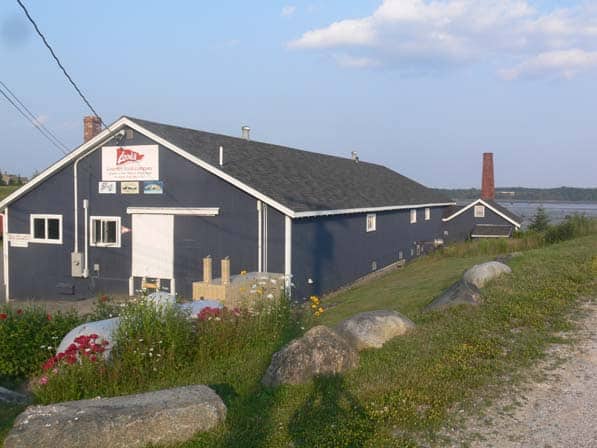Whiting, Maine: population 487. The town overlooks Holmes Bay on the Atlantic Coast and is a mere stone’s throw from New Brunswick, Canada. Aside from being an out-of-the-way stopping point for outdoor lovers, there isn’t much in Whiting. But it was precisely this quietude, backed by a powerful taste for seafood, in which executive and entrepreneur Michael Cote saw an opportunity: the A.M. Look Canning Company. Down-east Maine seafood canner William M. Look founded the company in 1917, but, by the time the small factory hit the 21st century, its assets were hardly more than that of a retrograde operation with severely antiquated infrastructure.
“When I acquired what we fondly term, ‘the boutique cannery,’ the product was being produced in 60-gallon kettles, portaged by pail, and manually fed into a filler,” Cote says. “There was no automation, and there were only a handful of employees.”
Culinary credentials
Cote discovered Look’s in 2003, while on vacation and at the tail end of his stint as vice president of sales and operations at Odwalla, an all-natural juice company that was purchased by Coca-Cola earlier that same year. Cote was 48 years old at the time, and it had been two decades since he left his home state of Maine to pursue a career in the corporate world.
Cote got his start in the food-distribution industry in Maine, though his work began taking him all across the country, enabling him to learn the dynamics of the food industry from the bottom up. “I bought a previously unsuccessful bread truck route in Western Maine, fixed it, and from there worked my way up through the company and spring-boarded from a VP-level position at
Pepperidge Farm to Odwalla, which is really where I got a sense for what the natural and specialty business is all about,” Cote says.
For Cote, prior to buying Look’s Gourmet Food Company, the evolution that had taken place in his career for the 20-plus years leading up to his return to Maine followed an organic progression that made the canning-industry prospect not only a sensible next step, but a personally appealing one as well. “Throughout my career, I worked around the country growing brands for other corporations,” he says. “I was the fix-it guy, figuring out what was wrong and making it successful. There was a great allure when I found out about this company in Maine that I could fix for myself, because it brought me full-circle, back to my roots.”
Back to basics
Out of the gate, Cote began marketing the business as Bar Harbor Foods, nodding to both the provenance and the inspiration for the reformulated and naturalized product line: clam juice, clam chowder, lobster bisque, wild herring fillets, and myriad other authentic New England offerings, all stamped with a large Bar Harbor icon featuring a small yacht, sails full, against a rolling green horizon. The image itself speaks to a natural simplicity, which Cote was keen to capitalize on. “From the work I had been doing previously, I knew that the natural and organic segment would be the fastest growing in the market, and that’s played out nicely,” he says. “I reformulated all the Bar Harbor products myself, and hit the road, marketing the nostalgic canning company from Maine.”
Cote arrived at a transitional time in Maine’s canning industry. At one point, Cote says there were more than 40 canneries along Maine’s Atlantic Coast, most of which were producing only one or two types of seafood product. Over the decades, tastes have changed as fast as business models, and, when Cote came to Look’s, Whiting was threatening oblivion. The fact that the Bar Harbor brand has not only persisted but thrived, Cote attributes partly to a diversified and naturalized product line, and partly to a little bit of ingenuity. “I had this idea that I could revitalize the uniqueness of the products in our portfolio,” Cote says. “The company had once been relevant, and I was able to save the assets, essentially, by modernizing the operation.”

Making a name
Currently Bar Harbor Foods is the only thriving cannery operating along Maine’s coast. Its products are available in more than 40 percent of US retail grocers and are in distribution internationally, as far away as Japan and South Africa. Though perhaps not yet of a magnitude on par with Campbell’s or Kraft, Bar Harbor Foods represents a realization of 21st century tastes and business aptitude, which has garnered Cote the recognition of the state and national chapters of the Small Business Association, Inc. magazine, and Maine Biz magazine, to name a few, for his entrepreneurial leadership.
“We’re doing things differently—not just going through the motions and repeating our business cycle,” Cote says. “We’re continuously doing real, critical assessment of who we are as a company and a brand, and how we position and market that within a sea of competitors.”
In addition to revamping the business and infrastructural operations at Bar Harbor over the past 10 years, the company has defined itself as a job creator in the struggling coastal Maine economy. “Of all the areas in Maine, one of the toughest economic spots is coastal Washington County, and we’re in the heart of it,” Cote says. “Through our success, we’ve created relevant opportunities for employment.” Less than 10 people were working at the cannery when Cote acquired it in 2003; now, the cannery employs close to 30 people. It’s not a huge increase, but statistically, Bar Harbor Foods is employing nearly six percent of Whiting’s population, a number that reflects the positive economic and social results of good business sense applied smartly and locally.
“The old adage that you are what you eat is becoming more relevant every day,” Cote says. “People increasingly want tasty, healthy food, and what gives us distinction at Bar Harbor Foods is that we create authentic New England fare using the same simple ingredients you have in your pantry at home.”
Which is a way of saying that, sometimes, even in diversification, there is simplicity, and, in simplicity, success.

